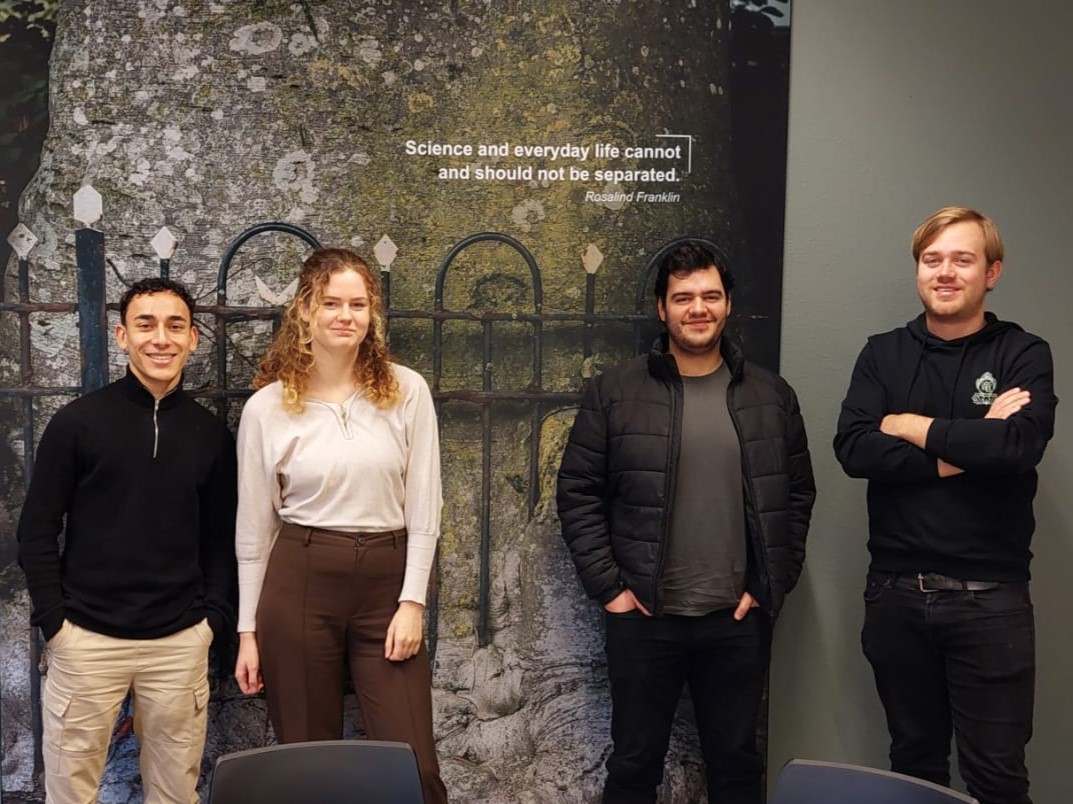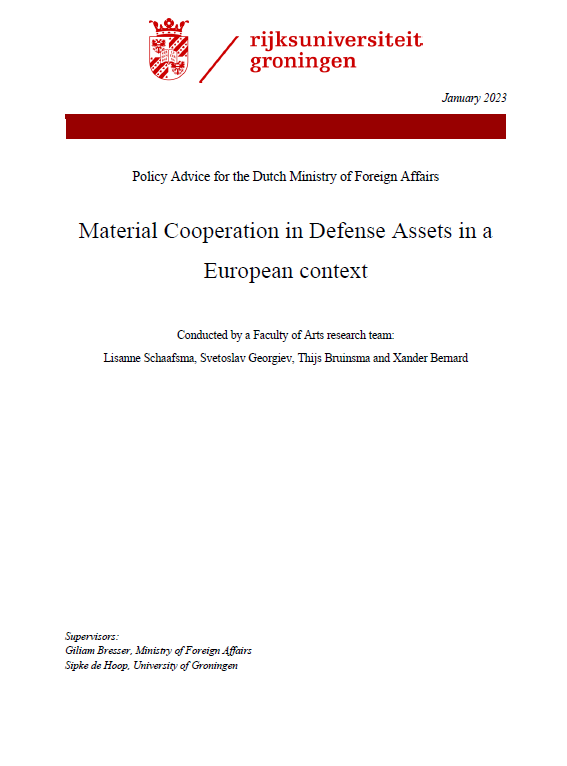Defence-asset cooperation within Europe
With the current war in Ukraine and China and Russia denying the global status quo, the international rule of law is facing immense challenges. The European Union realises that it needs to strengthen their internal cooperation as well as the trans-Atlantic relationship. Being part of the European Union, the Netherlands is highly involved in the challenges caused by this global shift. For this reason, the Ministry of Foreign Affairs has reached out to the University of Groningen with an important question: “How can defence-asset cooperation within Europe be strengthened so that it contributes effectively to the objective of more open strategic autonomy as stated in the Strategic Compass, while at the same time taking into account the interests of the Dutch government, the EU and national industry, NATO and the trans-Atlantic relationship?”

Who are we?
A team of four Faculty of Arts students has taken up the challenge of answering this complex question. The research team consists of Lisanne, Svetoslav, Thijs and Xander; an interdisciplinary mix of International Relations, History, European Languages and Cultures and Middle Eastern Studies. This interdisciplinary nature of the group enables them to apply different perspectives and knowledge from their field of work onto real world challenges.
Our approach
Europe and the United States have long been the centre of the post-war world order. With Russia and China on the rise, we focus on how the EU can form a united front with regard to defence. The Netherlands is inextricably linked to the EU, which is why we also focus on Dutch interests in the fields of politics, economics and security and defence.
Additionally, we look into the organisation of the European Union to explore the strengths and weaknesses of the cooperation and joint procurement within the Union and with trans-Atlantic partners. Our focus will be on the European defence industry, the Dutch industry and the effects of current and futures crises on the European defence-asset cooperation. Through an analysis of the main players in the European defence arena, we will gain insights of the industry and the threats and problems it is facing. The project will result in offering new insights and tangible advice to the Ministry of Foreign Affairs that will support them in formulating policy on this complex and timeless topic.
From October until January, our interdisciplinary team of bachelor students has been researching international cooperation on the production and procurement of defence material. Current threats such as Russia and China have led to an urgent need for the European Union to strengthen their internal cooperation as well as the trans-Atlantic relationship. In this light, we provided an extensive inventory of the Dutch and international defence industry, as well as an in-depth research and policy advise which we presented at the Ministry of Foreign Affairs in The Hague. We have concluded the project successfully, with special thanks to our supervisor Col. Giliam Bresser from the Ministry of Foreign Affairs, and Dr. Sipke de Hoop from the University of Groningen.
Key Findings
• Although there is no unified European defence industry, there is a general industry striving for more autonomy in the global context consisting of various economic and political stakeholders, in addition to the defence companies.
• For European defence capabilities to strengthen, the focus should lie on collaborative projects that promote inclusivity in order to make it easier for states to profit from innovation and production that they would otherwise not have access to.
• There are many defence policies in place to increase autonomy and boost defence industrial capabilities, yet policies that support the defence industry rather than contain it are relatively new.
• Defence cooperation is a sensitive subject as it imposes on the sovereignty of states, yet current events have stressed the need to encourage the joint procurement of defence material assets to lower the threshold for states to grow their defence capabilities.
Our Policy Advice
• Further integrate the Dutch defence industry with other economically and politically similar "core" countries- Germany, Belgium, Denmark, the UK, Norway, Sweden, Luxembourg, and France.
• Push for discussions on the EU level on liberalizing regulations around mining and refining critical raw materials, diversifying suppliers, and developing indigenous EU critical raw materials refining and recycling industries.
• Push for discussions on joint NATO and EU level to decide what role Europe will play in countering the military threat from China and Russia and plan the material cooperation accordingly.
• Ensure that the interests of small and medium Dutch defence enterprises are represented and protected in EU or NATO negotiations on joint research and procurement projects, in order to retain their competitive position and to protect the subcomponent industry.

